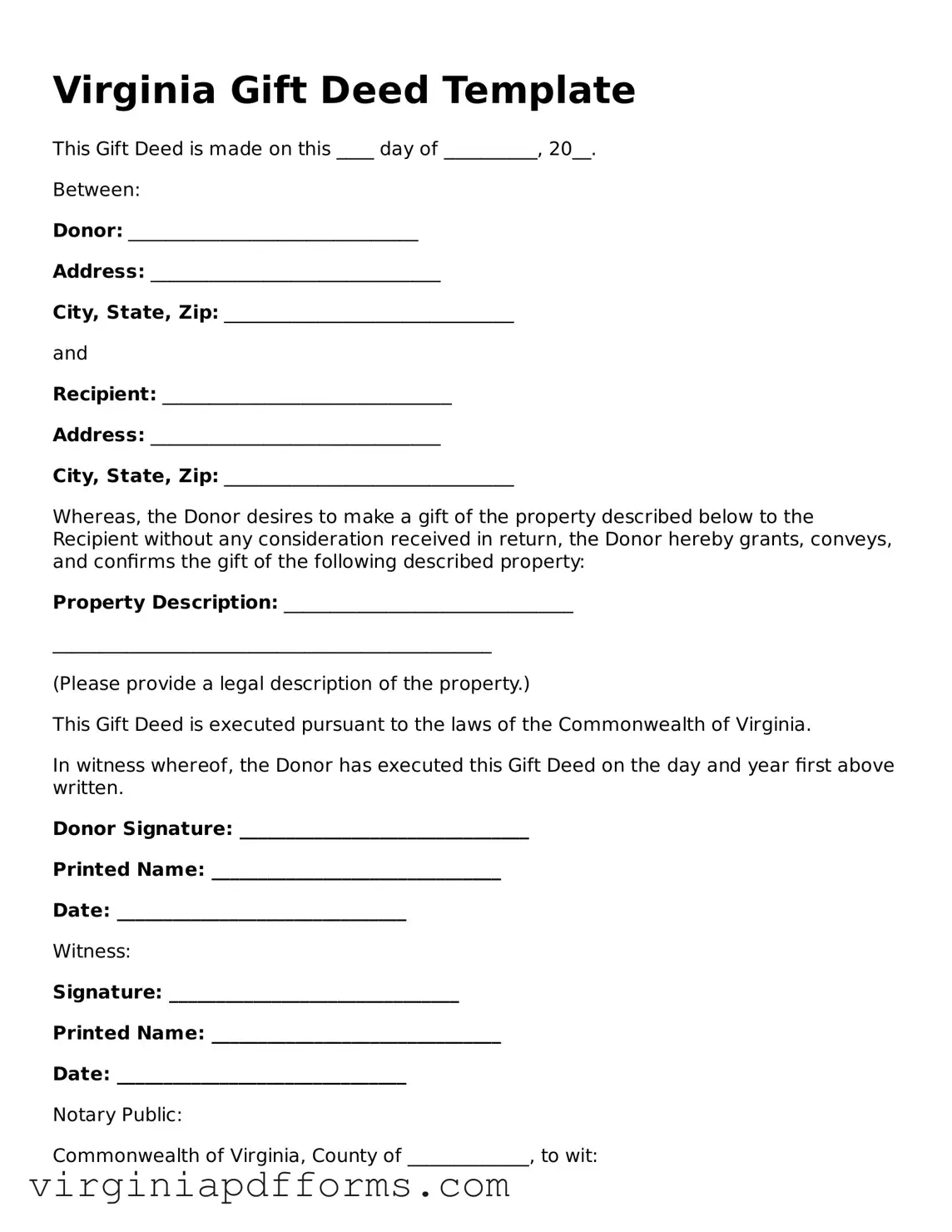Attorney-Approved Virginia Gift Deed Document
A Virginia Gift Deed is a legal document used to transfer property from one person to another without any exchange of money. This form allows the donor to give a gift of real estate, ensuring that the recipient receives full ownership rights. Understanding the requirements and implications of this deed is essential for both parties involved.
Access My Document Now

Attorney-Approved Virginia Gift Deed Document
Access My Document Now

Access My Document Now
or
Free Gift Deed File
Need this form wrapped up fast?
Finish Gift Deed online — edit, save, download without effort.